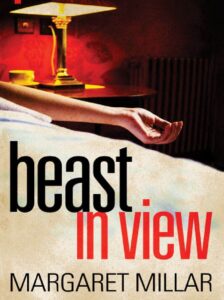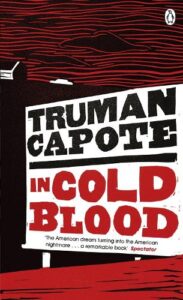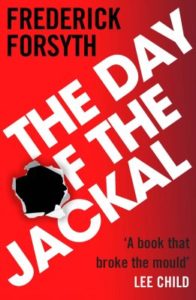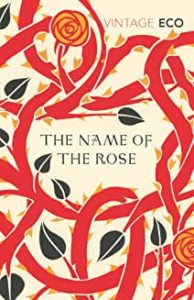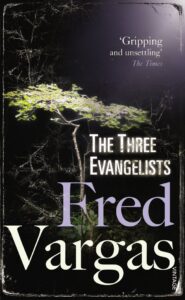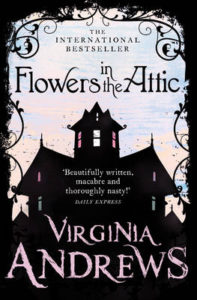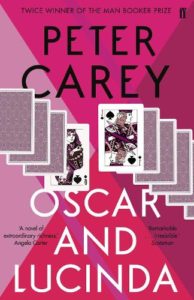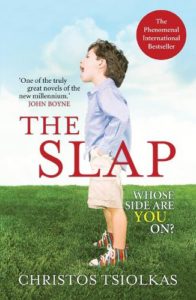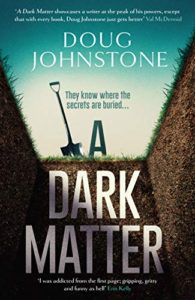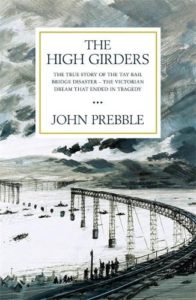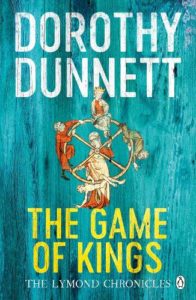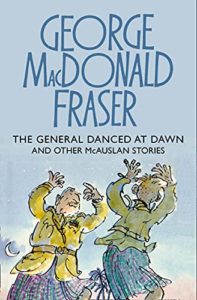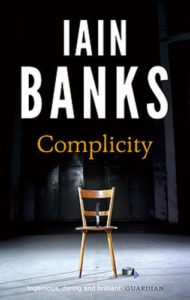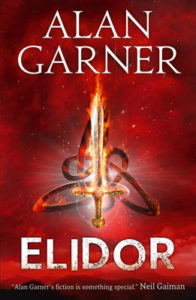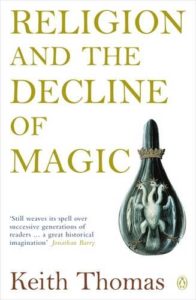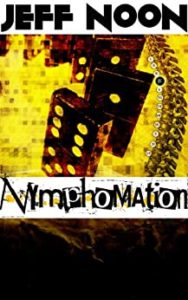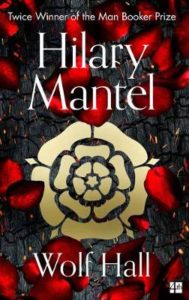Decades: Compiling the Ultimate Library with A.K. Turner
I adopted my alter ego of Grab This Book back in the spring of 2014. Initially I had hoped my blog would encourage someone to buy books I had loved reading. Ten and a half years later that hope endures, I love to know my blog is responsible for someone buying a book and discovering the work of an author they may not have previously enjoyed.
As I prepare to share the latest contribution to my Decades Library I am able to report my blog is meeting my primary goal…someone has bought a book which has been recommended on Grab This Book. That someone is me. And the person responsible for me buying a new book is my latest Decades Curator, A.K. Turner (Ali), who has drawn my attention to a book published in the 1950’s that sounds right up my street. You’ll find out which book that is once you scroll further down this post.
But first the Decades introduction: Since January 2021 I have been assembling the Ultimate Library; a collection of unmissable and much loved books. I tried to put myself into the shoes of a librarian who was presented with a brand new library. No Books, dozens of empty shelves. Which books would the librarian (me) add to those empty shelves to ensure library visitors would only have the very best books to choose from. I decided I could not possibly fill the empty shelves alone so I invite guests to nominate their favourite reads and help me assemble a Decades Library.
Why a Decades Library? This is down to the two rules I ask all my guests to follow when making their choices:
1 – You Can Select ANY Five Books
2 – You May Only Select One Book Per Decade From Five Consecutive Decades
Sometimes my guests will “flex” the rules to ensure their favourite books make the cut. But I am happy to report that this week’s guest curator, AK Turner, has stuck to the rules and made five terrific recommendations. I’ve already bought one and I’ve got my eye on the selection from the 1990s too! This is a good week for me (but perhaps not for my bank balance) so over to Ali to terrorise your TBR with more temptation than you wanted.
A K (aka Ali) lives in East London where she writes the mortuary-set Cassie Raven mysteries. Ali produces TV documentaries on true crime and science topics. And just for light relief she is a City of London guide.
Ali likes to create memorable characters, throw them into unusual settings, and add a hefty dose of murder and a twisty-turny plot. Her latest series introduces a forensic heroine – a crime-solving Goth-girl mortuary technician who talks to the dead, a character first launched in two crime shorts aired on BBC Radio 4. A K’s previous series, written under the pen name Anya Lipska, starred a London-based Polish fixer who’s happy to crack heads to solve crimes – which saw her being selected for Val McDermid’s prestigious New Blood Panel at Harrogate Crime Festival in 2012.
Ali is on Twitter (X) as: @AKTurnerauthor
Her website is: https://www.anyalipska.com/ and all of Ali’s books can be found here too: https://www.amazon.co.uk/stores/author/B088P77TFC?ingress=0&visitId=226787bb-40e2-4a4b-a7fa-b09b7cfcfa58
DECADES
BEAST IN VIEW, MARGARET MILLAR
A US crime novelist famous in the Fifties, Margaret Millar deserves to be better known in the UK. She was a pioneer of the psychological crime genre whose work has (still) rarely been bettered. Her prose is spare yet razor-sharp, the psychology credible, and her ability to conjure a potent noir mood is up there with Ray Chandler. For me, Beast in View – a rattlingly-told, slender but compulsive 160 pages – is her best, and in 1956 the judges of the Edgar Allan Poe Award agreed when they handed her the prestigious prize. Helen Clarvoe, who lives alone in the hotel she has inherited, is brittle and neurotic (I love Millar’s description: ‘skinny in her plaid coat’) and her anxiety is ramped to the max by a series of mysterious taunting phone calls. She hires a private detective to trace the malicious caller – and their relationship provides the emotional bedrock of the tale.
IN COLD BLOOD, TRUMAN CAPOTE
Way before true crime became a podcast phenomenon this classic of the genre is Capote’s standout achievement and a work of genius. A journalist/columnist more accustomed to necking Screwdrivers in the Ritz Carlton and peddling high society gossip he was an unlikely character to chronicle the horrendous murder of the Clutters, a blameless mid-Western farming family in rural Holcomb, Kansas. Capote tells the chilling story of how a home invasion by two robbers that spirals inexorably into cold-blooded multiple murder but where his account really excels is in his psychological portrait of one of the killers, Perry Smith, who Truman interviewed – and even befriended – on Death Row over several years. Truman interrogates Smith’s utterly grim upbringing (an alcoholic mother who choked on her own vomit when he was 13, abused by nuns in an orphanage,) arguably the triggers that set him on track for a life of petty crime and eventually brutal murder. A beautifully written journey into the dark side of the American dream.
DAY OF THE JACKAL, FREDERICK FORYSYTH
When I was eleven or twelve I wasn’t allowed full access to my dad’s book collection. Undeterred, I would wait until my parents were out and clamber on a chair to reach the upper cupboard where the censored works were (poorly) concealed. Here were adult treasures like the X-rated Lolita and Onward Virgin Soldiers, but the books that really stuck with me – and which influenced my debut crime novel nearly 40 years later – was this stellar example of the thriller form.
Nowadays the descriptor ‘thriller’ can be applied indiscriminately, but Day of the Jackal delivers on the original and more precise definition – a story in which we know the identity of the bad guy upfront, and in which the narrative propulsion is whether he is going to fulfil his mission – the assassination of General de Gaulle, or whether his police inspector antagonist will stop him. Why was the book on the ‘top shelf”? I suspect because of the troubling scene in which a woman strays into his path which ends with the pair having an ill-fated one-night stand. Forysth remains unbeatable in my view for sheer storytelling. See also The Odessa Files.
NAME OF THE ROSE, UMBERTO ECO
Proof positive that an intellectual like Eco can also write a cracking whodunnit – while in the process exploring the power of heretical ideas that conflict with Church dogma of the medieval era, Greek philosophy, the history of theology, and more. From the moment the
daring thinker Brother William sets foot in a Benedictine monastery in the Italian mountains where he is charged with exploring the mysterious death of one of the brothers, you’ll be hooked. His characters are unforgettable as are his descriptions of the snow-bound monastery and its spooky and labyrinthine scriptorium, where lie hidden forbidden manuscripts which doom the reader to instant death. Cracking stuff.
THE THREE EVANGELISTS, FRED VARGAS
I enjoy having to navigate the unfamiliar both in terms of place and the different vibe non-UK writers, especially the French, bring to the genre. The crime fiction of continental Europe feels more quirky and less mainstream than much of our homegrown crimefic, where writers can face a more commercial attitude from the publishing industry.
Fred Vargas is one of my favourite crime writers of any nationality. Her Inspector Adamsberg policier series is a reliable treat but The Three Evangelists is my standout favourite. The ‘evangelists’ – friends Marc, Mathias, and Lucien – are hard-up historians in a dilapidated house-share who notice that a new tree has unaccountably appeared in the back garden. Soon afterwards a neighbour is murdered and they are drawn into investigating the death. The resulting tale – off-beat, amusing, and indefinably French – effortlessly transported me from workaday East London into a different world.
Five terrific selections which I am adding to my Library shelves. I’ve started collecting the Fred Vargas books but have not yet reached The Three Evangelists so it is really exciting to see this book being nominated for inclusion in the Decades Library, it bodes well for my future reading. I am so grateful to Ali for finding time to make her choices, her Cassie Raven series is easily one of the best collections I have been reading over recent years and I await each new title with an unhealthy obsession. If you have yet to discover the world of Cassie Raven then the best move you can make today is to seek out the first book (Body Language) and then thank me later.
DECADES WILL RETURN

